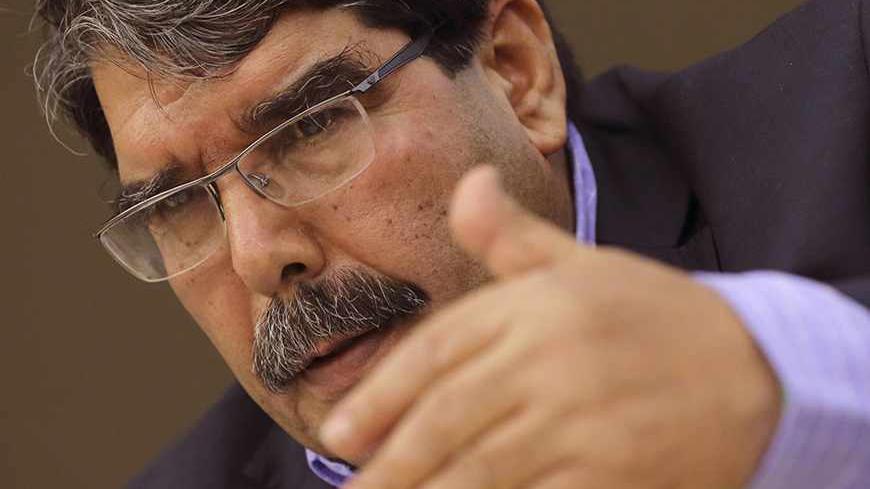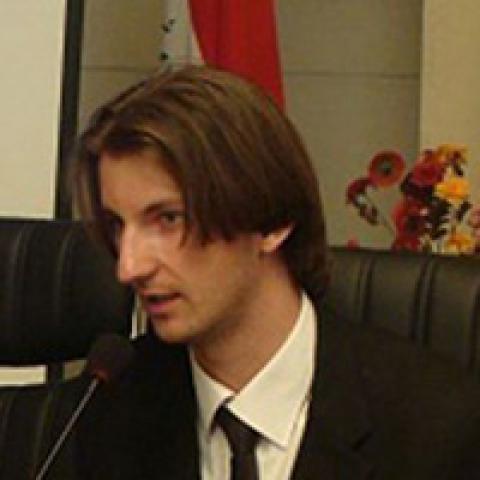LONDON — On Nov. 11, the Democratic Union Party (PYD) announced it would move ahead with its plan to form a transitional Kurdish government in Syria without most members of the rival Kurdish National Council (KNC). The Kurdish parties closer to Turkey or opposed to Iran did not support the plan, while the Kurdish parties closer to Iran and Syria were more positive.
The Kurdish parties from Iran, Iraq, Syria and Turkey reacted differently toward the announcement — Kurds are landlocked and divided over these countries. The Kurdish parties tried to overcome these divisions by holding a national congress on Nov. 25-27, which was, however, indefinitely postponed for the third time as a result of external pressure and internal Kurdish rivalry.
The main reason for these divisions is the tension between the PYD, affiliated with the Kurdistan Workers Party (PKK) led by imprisoned Abdullah Ocalan, and the KNC, which is backed by the Kurdistan Democratic Party (KDP) and led by Kurdistan Regional Government (KRG) President Massoud Barzani.
The PKK and its affiliates accuse the KDP of supporting Turkey against Kurdish autonomy in Syria, while the KDP and its affiliates accuse the PYD of working with the Syrian government and oppressing other Kurdish parties affiliated with Barzani.
As a result of these tensions, on Oct. 23 the KDP refused PYD leader Saleh Muslim entry into Iraqi Kurdistan after he visited Syria for the funeral of his son who was killed fighting al-Qaeda. This sparked a media war between the PKK and KDP.
Fuad Hussein, chief of staff to Barzani, admitted in an interview with the KDP-affiliated Rudaw media organization that the delay was related to tensions inside Syria between the PKK and KDP.
“The issue in Rojava [the western part of Kurdistan, or Kurdish areas in northeast Syria] is big, and unless it is solved we can't hold the congress,” Hussein said.
In Iraq’s autonomous Kurdistan region the seats are divided between the two ruling parties, the Patriotic Union of Kurdistan (PUK) led by Iraq's President Jalal Talabani, the KDP led by Barzani and a number of opposition parties.
In the Sept. 21 elections for the 111-seat parliament in the Kurdistan region, the KDP increased its number of seats from 30 to 38, while the reformist movement — the Change List — won 24, taking the PUK’s place as the Kurdistan Region of Iraq’s second-largest party.
Both the PUK and the Change List have been supportive of the PYD. Their goal is to counterbalance KDP influence in Iraqi Kurdistan in an attempt to gain more popularity. Moreover, while the KDP is closer to Turkey, the PUK is closer to Iran.
For instance, on Nov. 15, KNN TV — affiliated with the Change List — quoted Muslim as accusing the KDP of working "in line with the enemies’ plans [referring to Turkey]."
Mohammed Kayani, a member of the Iraqi parliament for Gorran, told Al-Monitor, “We clearly support this administration, which fills the administrative, political, military and security vacuum in the area.”
Kurds divided over Syrian autonomy

Access the Middle East news and analysis you can trust
Join our community of Middle East readers to experience all of Al-Monitor, including 24/7 news, analyses, memos, reports and newsletters.


